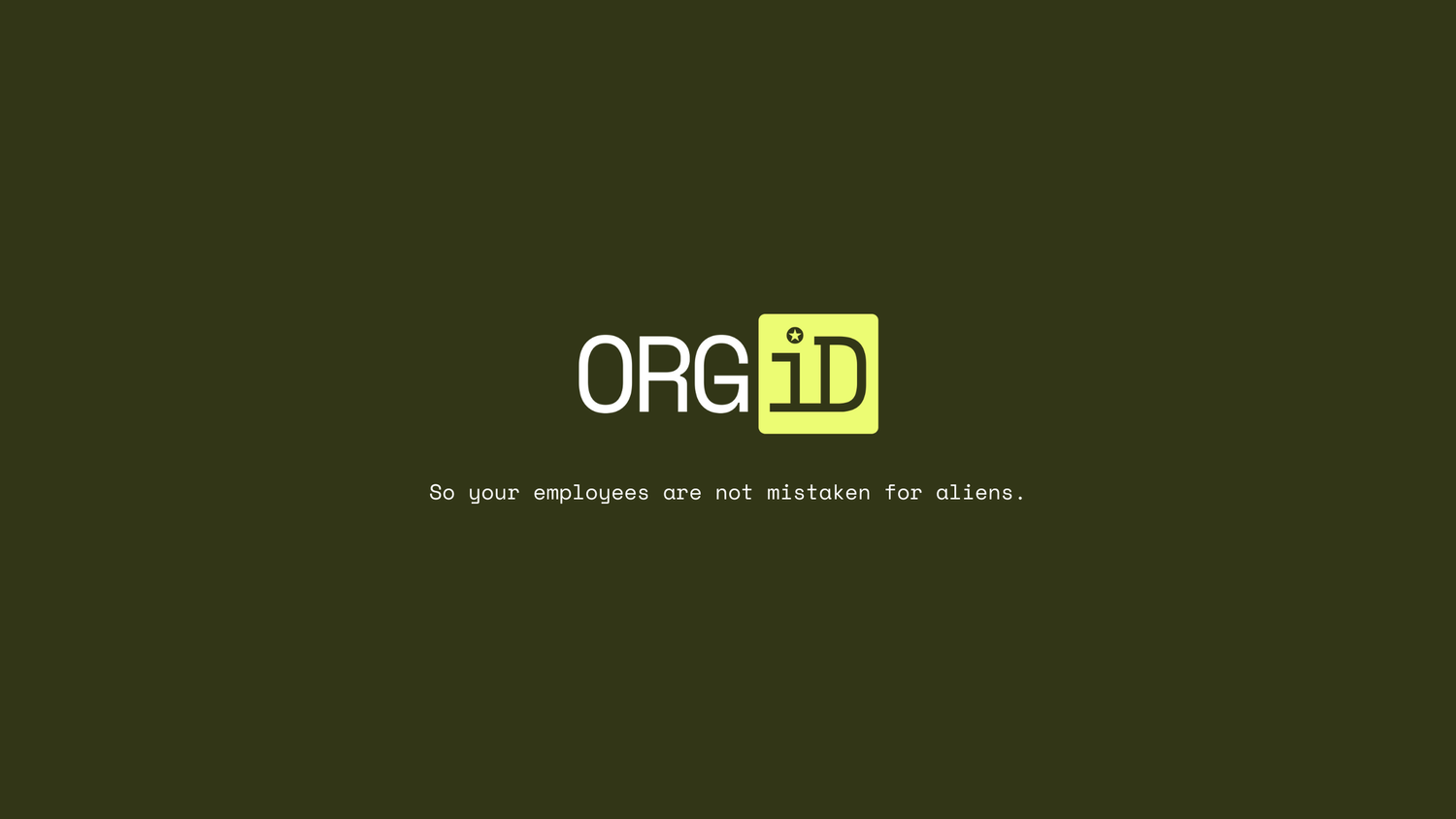In today's fast-paced digital landscape, the significance of a robust digital identity cannot be overstated. As organisations increasingly shift towards a virtual framework, the necessity for secure and efficient identity verification has become paramount. A well-implemented digital identity system streamlines processes and enhances security measures against potential breaches. With cyber threats becoming more sophisticated, businesses must adopt innovative solutions safeguarding user data and organisational integrity. Digital identities enable companies to verify employee and customer identities swiftly, ensuring that sensitive information remains protected.
Moreover, the rise of remote working arrangements has further amplified the need for reliable digital identity solutions. Employees are now accessing company resources from diverse locations, making it essential for organisations to have a secure method of verifying identities remotely. Traditional methods, such as physical ID cards, are often cumbersome and ineffective in a digital-first environment. As businesses adapt to this new normal, they must consider solutions that meet current demands and anticipate future challenges related to identity management and security.
In addition to enhancing security and efficiency, digital identity contributes to environmental sustainability. The production and disposal of plastic ID cards generate significant waste, raising concerns about environmental impact. Organisations can significantly reduce their carbon footprint by transitioning to digital identity solutions while promoting an eco-friendly approach. This shift aligns with the growing global emphasis on sustainability and demonstrates a commitment to responsible business practices. As the world embraces digital transformation, the importance of establishing a secure and efficient digital identity becomes increasingly clear.

Key Features of ORGiD Digital Identity Cards
ORGiD Digital Identity Cards are designed with a suite of features catering to modern organisations' diverse needs. One of the standout characteristics is the platform's user-friendly interface, which simplifies the process of identity management. Employees can easily access their digital cards through a mobile application or a web portal, enabling quick verification without the hassles associated with physical cards. This intuitive design ensures that administrators and users can easily navigate the system, minimising the learning curve and maximising efficiency.
Another key feature is the versatility of the ORGiD platform. It accommodates various identification methods, including biometric verification, QR codes, and NFC technology. This multifaceted approach allows organisations to select the identification methods that best suit their operational needs, enhancing flexibility and user experience. The integration of advanced technologies speeds up the verification process and provides an additional layer of security, ensuring that only authorised personnel can access sensitive information or secure areas.
ORGiD Digital Identity Cards also incorporate a cloud-based management system, which streamlines administrative tasks related to identity verification and access control. This centralised approach allows HR departments and security teams to manage employee credentials efficiently, facilitating real-time updates and changes. The platform also supports integration with existing systems, such as ERP and access control solutions, enabling seamless transitions and reducing the disruption often associated with implementing new technologies. With these robust features, ORGiD is poised to redefine identity management for organisations of all sizes.
Purpose-based, Dynamic Sharing
Identity cards in the physical world often share too much or insufficient data. However, you can configure your digital identity card for different use cases, giving the card bearer the power to determine the information shared by purpose.
Examples of purpose-based, dynamic sharing, includes:
- Biomedical data
- Building access
- Employment verification
- Evidence of licences and permits
- Finance applications
- Health Insurance information
Benefits of Using ORGiD Digital Identity Cards
The advantages of adopting ORGiD Digital Identity Cards extend beyond mere convenience; they encompass enhanced security, cost savings, and improved operational efficiency. One of the most significant benefits is the heightened security that digital IDs offer. By employing encryption and advanced authentication methods, ORGiD ensures that user data remains secure from unauthorised access. This level of security protects sensitive information, and fosters trust among employees and clients, reinforcing the organisation's commitment to safeguarding their data.
Cost savings are another compelling reason to transition to ORGiD Digital Identity Cards. Traditional plastic cards require ongoing production, distribution, and management costs, all of which can accumulate over time. In contrast, digital identity solutions eliminate the need for physical materials, reducing waste and lowering expenses associated with printing and distribution. Furthermore, the efficiency of managing digital identities can lead to reduced administrative overhead, allowing staff to focus on more strategic tasks rather than time-consuming manual processes.
Operational efficiency is further enhanced by seamlessly integrating ORGiD Digital Identity Cards into existing workflows. The ability to quickly issue, revoke, and update digital identities means that organisations can respond to changes in personnel or access requirements with agility. This adaptability is vital in today's dynamic work environments, where roles and responsibilities can shift rapidly. By streamlining identity management, ORGiD empowers organisations to operate more effectively and maintain a competitive edge in their respective industries.
How ORGiD Digital Identity Cards Work
The functionality of ORGiD Digital Identity Cards is built upon a sophisticated yet user-friendly framework that simplifies identity verification. The process begins with employee onboarding, where individuals receive their digital identity card through the ORGiD platform. This card is accessible via a mobile application, ensuring that users can always carry their identification without the burden of physical cards. Once registered, users can authenticate their identity through various methods, including biometrics, QR codes, or NFC technology, depending on the organisation's preferences.
Administrators can monitor usage trends, track access to secure areas, and identify potential security risks. This data-driven approach allows organisations to make informed decisions regarding security protocols and access management, ultimately reinforcing their overall security posture. With its innovative design and functional capabilities, ORGiD Digital Identity Cards represent a significant advancement in identity management.
Security Measures of ORGiD Digital Identity Cards
Security is a paramount concern for organisations when it comes to identity management, and ORGiD Digital Identity Cards are equipped with advanced measures to mitigate risks. One of the fundamental aspects of ORGiD's security framework is encryption technology. By encrypting sensitive data, ORGiD ensures that user information is protected from potential breaches, making it virtually impossible for unauthorised individuals to access or manipulate data. This encryption extends to data at rest and in transit, safeguarding information throughout its lifecycle.
In addition to encryption, ORGiD employs multi-factor authentication (MFA) to strengthen access controls. This approach requires users to provide multiple verification forms before accessing their digital identities. For example, employees may need to input a password and verify their identity through a biometric scan or a one-time code sent to their mobile device. This additional layer of security significantly reduces the likelihood of unauthorised access and enhances overall security protocols within the organisation.
Furthermore, ORGiD Digital Identity Cards are designed with the potential for real-time monitoring and alerts. The platform can track access attempts and notify administrators of suspicious activity, enabling organisations to respond swiftly to potential threats. This proactive monitoring capability is essential for maintaining a secure environment, particularly in sectors that handle sensitive information like finance, healthcare, or government. By prioritising security through advanced measures, ORGiD ensures that organisations can confidently embrace digital identity solutions without compromising safety.
Applications of ORGiD Digital Identity Cards in Various Sectors
The versatility of ORGiD Digital Identity Cards allows for their application across a wide range of sectors, each benefiting from the enhanced security and efficiency that digital identities provide. Organisations can utilise digital IDs for employee access control in the corporate sphere, streamlining entry to secure areas and sensitive data. This is particularly beneficial in industries where confidentiality is paramount, such as finance and technology. By implementing ORGiD, companies can ensure that only authorised personnel access critical systems and information, thereby mitigating the risk of data breaches.
In the healthcare sector, ORGiD Digital Identity Cards can revolutionise patient identification and access to medical care. By securely verifying the identity of healthcare professionals, hospitals can enhance patient safety and ensure that sensitive information is only accessible to those who require it. Moreover, patients can be issued digital IDs that facilitate seamless access to their medical records, empowering them to take control of their healthcare journey while maintaining privacy and security.
Educational institutions also stand to gain from implementing ORGiD Digital Identity Cards. Universities and colleges can issue digital IDs to students, simplifying access to campus facilities, libraries, and online resources. This enhances the student experience and provides institutions with a more efficient way to manage student identification and access controls. Additionally, the ability to track attendance and participation through digital IDs can provide valuable insights for educators and administrators alike. As the applications of ORGiD Digital Identity Cards continue to expand, it becomes clear that their benefits extend far beyond traditional corporate environments.
How to Get Started with ORGiD Digital Identity Cards
Embarking on the journey to implement ORGiD Digital Identity Cards within an organisation is a straightforward process that ensures a seamless transition from traditional methods to digital solutions. The first step involves assessing the organisation's specific needs and requirements. This includes evaluating existing identity management systems, identifying pain points, and determining how ORGiD can best address these challenges. Engaging key stakeholders, such as HR, IT, and security teams, is crucial to ensure that all perspectives are considered during the planning phase.
Once the organisation clearly understands its needs, the next step is to initiate the onboarding process with ORGiD. This typically involves setting up an account on the ORGiD platform and configuring the system to align with organisational policies and access controls. ORGiD provides comprehensive support during this phase, offering training and resources to ensure administrators and users are comfortable navigating the platform. A pilot programme can be beneficial, allowing the organisation to test the digital ID system with a small group of users before a full-scale rollout.
After successfully implementing ORGiD Digital Identity Cards, it is essential to establish ongoing support and maintenance protocols. Regular training sessions and updates will inform users about new features and best practices, ensuring the system remains effective and secure. Additionally, organisations should monitor user feedback to identify any areas for improvement, allowing for continuous enhancement of the digital identity management process. By taking these proactive steps, organisations can fully leverage the benefits of ORGiD Digital Identity Cards and ensure a successful digital transformation.
Future Trends in Digital Identity
As technology evolves, the digital identity landscape is poised for significant advancements. One of the prevailing trends shaping the future of digital identity is the rise of decentralised identity solutions. These systems enable individuals to control their personal information, reducing reliance on centralised databases that can be vulnerable to breaches. As privacy concerns become increasingly prominent, organisations may need to adapt to this shift by incorporating decentralised identity frameworks into their identity management strategies.
Another trend is integrating artificial intelligence (AI) and machine learning (ML) into digital identity systems. These technologies can enhance security measures by providing advanced analytics and predictive capabilities. For instance, AI can identify unusual access patterns or flag potential security threats in real-time, enabling organisations to respond swiftly to emerging risks. As AI and ML advance, their integration into digital identity management will likely become a standard practice, further strengthening security and efficiency.
Additionally, the growing emphasis on user experience will play a significant role in the future of digital identity. As more organisations adopt digital identity solutions, the demand for seamless and intuitive user interfaces will increase. Companies will need to prioritise user-centric design to ensure that employees and customers can easily navigate identity verification processes without frustration. This focus on user experience will ultimately drive higher adoption rates and satisfaction levels, reinforcing the importance of digital identity in organisational success.
Conclusion
In conclusion, adopting ORGiD Digital Identity Cards represents a transformative step forward in identity management for organisations across various sectors. Establishing secure, efficient, and environmentally sustainable identity solutions has never been more critical, particularly in the face of evolving technological landscapes and increasing security threats. ORGiD's innovative platform not only simplifies the process of identity verification but also offers robust security measures that protect sensitive information and bolster organisational integrity.
The multifaceted benefits of ORGiD Digital Identity Cards—from enhanced security and cost savings to improved operational efficiency—highlight the value of transitioning from traditional identity management systems. As organisations navigate the complexities of modern business environments, embracing digital identity solutions will be key to maintaining competitiveness and fostering trust among employees and clients.
As we look to the future, digital identity trends indicate a promising evolution that prioritises user control, advanced security measures, and seamless experiences. By staying ahead of these developments, organisations can ensure they are well-equipped to meet the challenges of identity management in an increasingly digital world. Embracing ORGiD Digital Identity Cards is not just a step towards modernisation but a commitment to innovation, security, and sustainability in the contemporary workplace.






